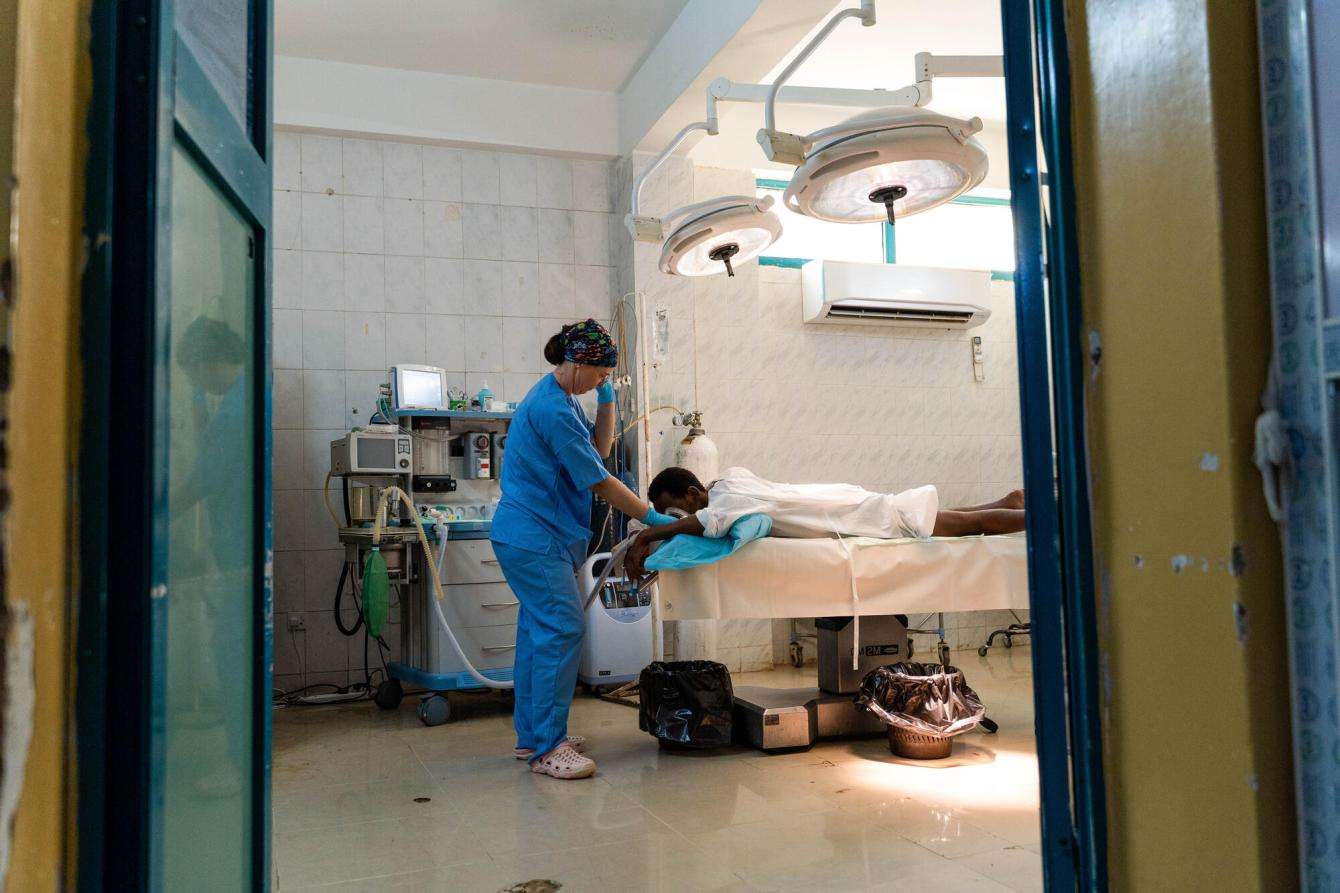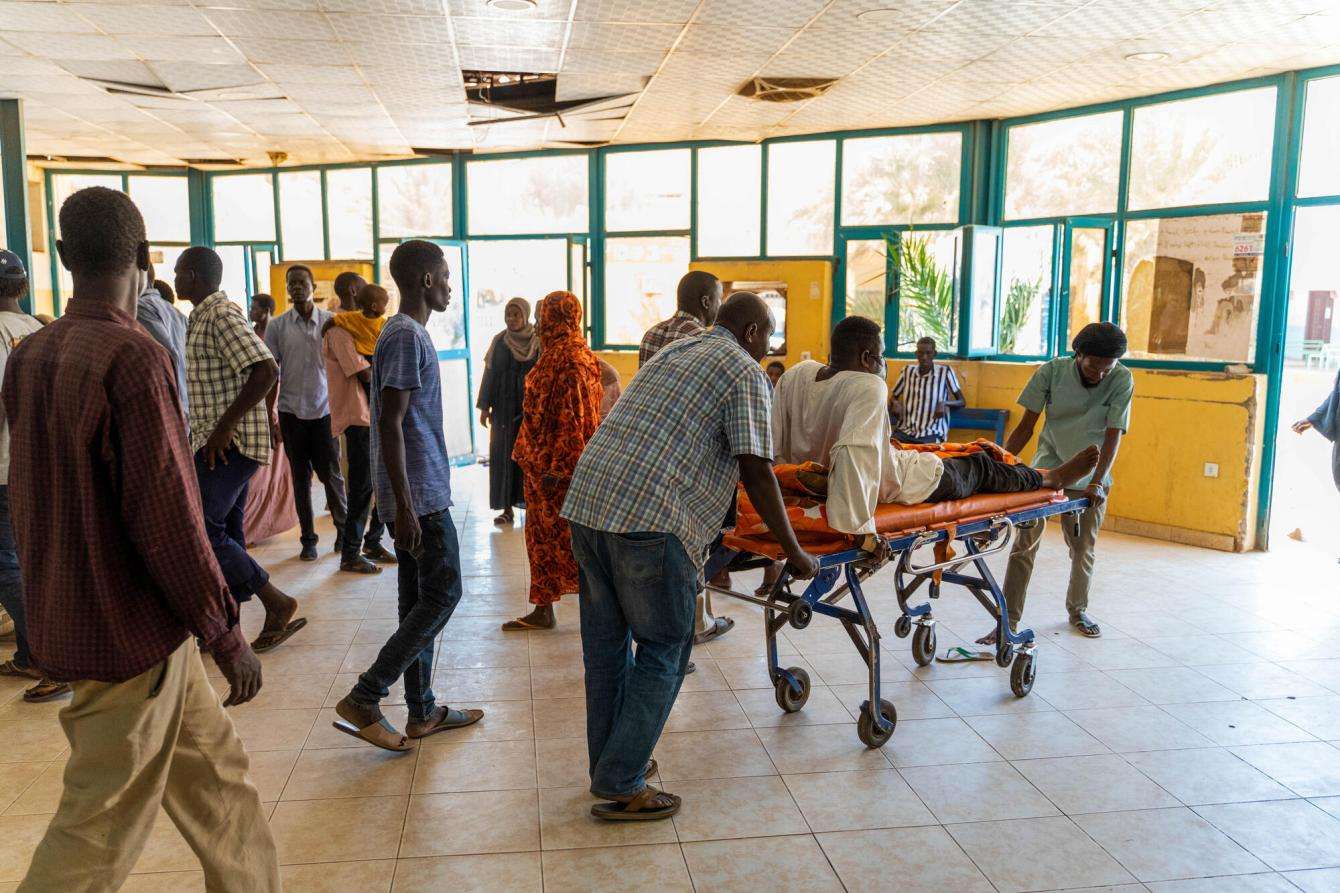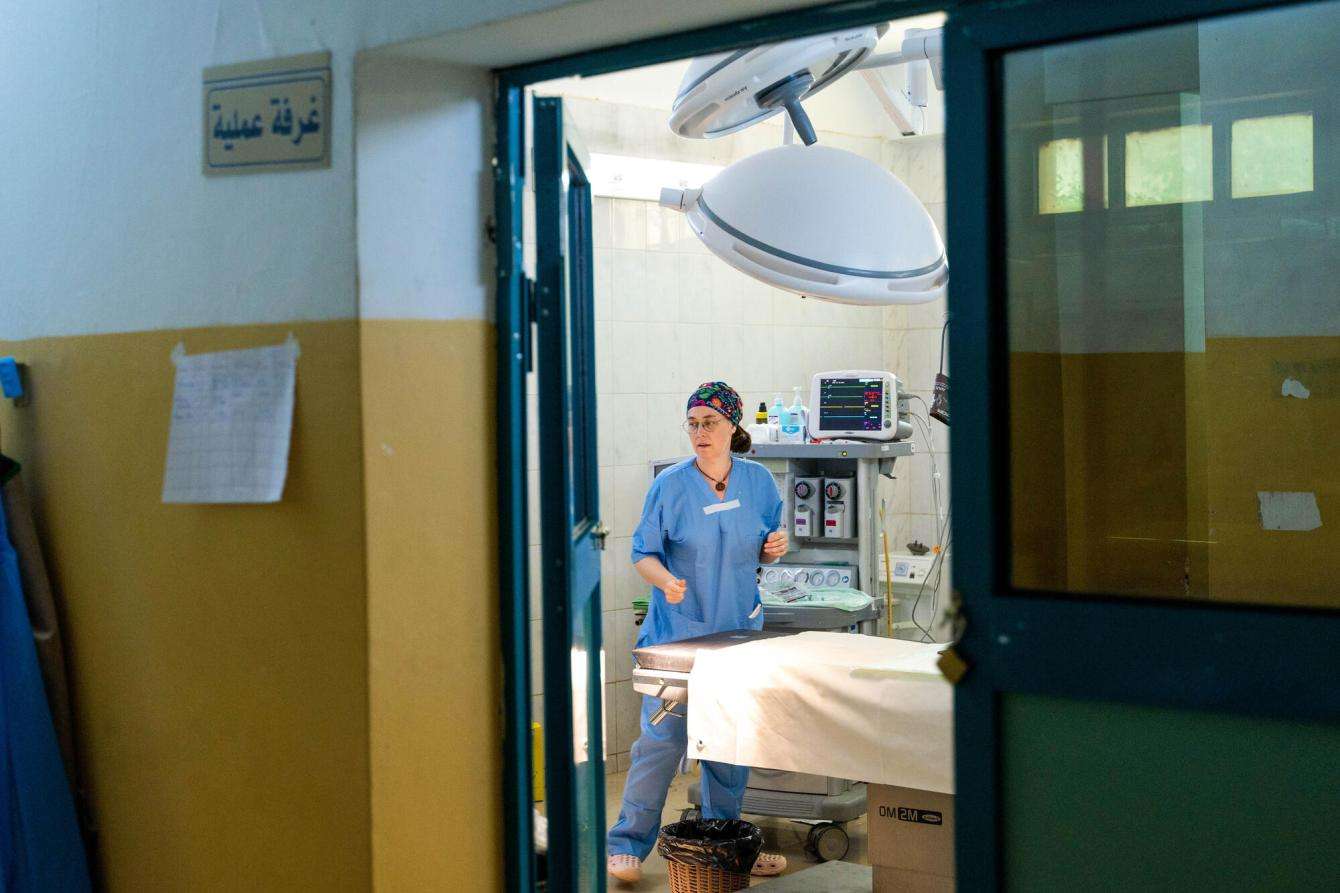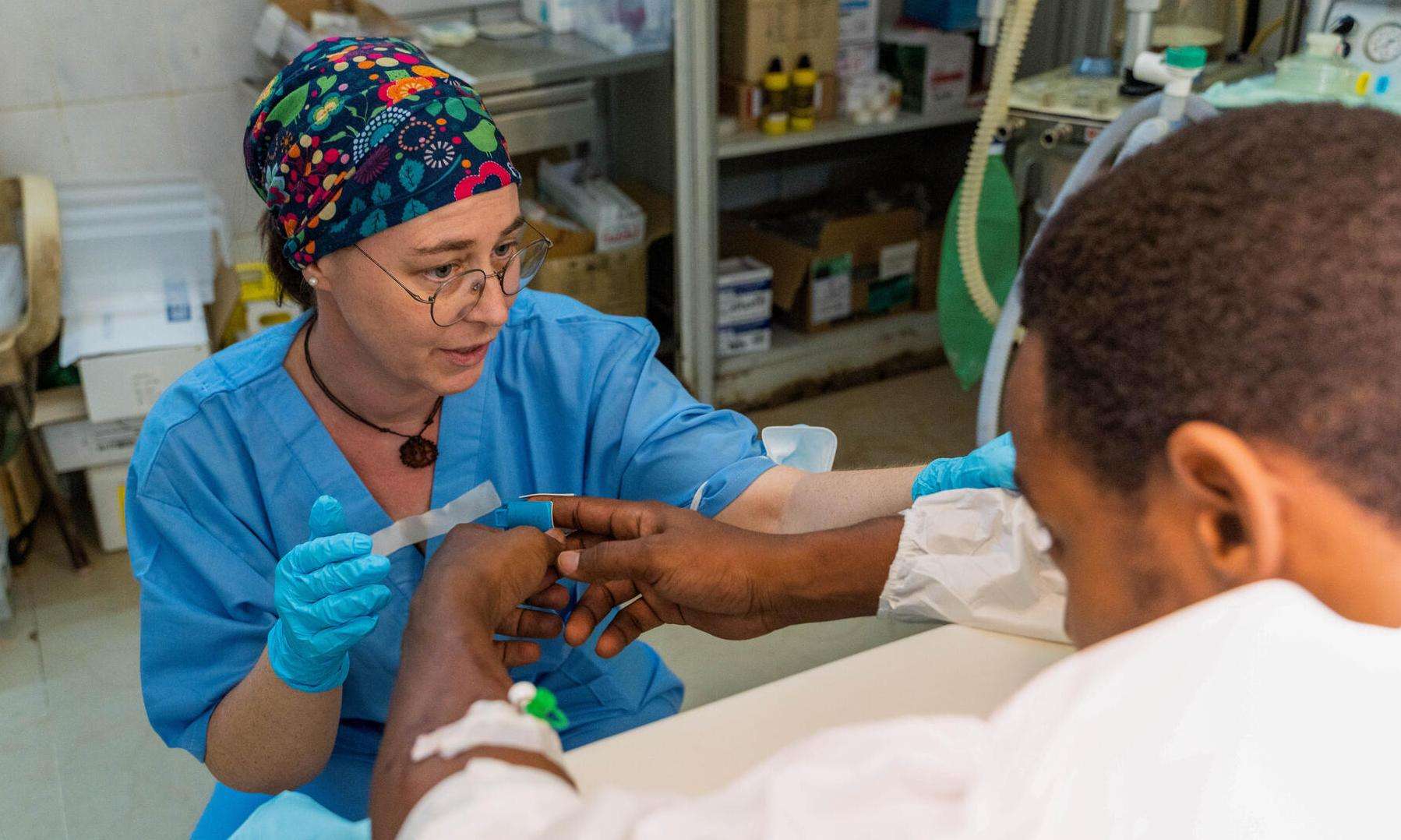KHARTOUM/NEW YORK, May 17, 2023—A medical and surgical team from Doctors Without Borders/Médecins Sans Frontières (MSF) is treating patients at Bashair Teaching Hospital on the south side of Khartoum, as ongoing violence severely increases medical needs in the city and other regions of Sudan.
The MSF team, working closely with local Sudanese medical professionals and volunteers, has treated more than 240 patients for traumatic injuries since May 9. Many have suffered gunshot wounds or injuries resulting from explosions, consistent with ongoing airstrikes and shelling in the built-up areas of the capital.

Conflict endangers health care access
Hospitals and health facilities have struggled to keep operating since intense fighting broke out in Khartoum on April 15, 2023, and rapidly spread to other parts of the country. Some have been badly damaged. Others are facing staff shortages after people fled or struggled to move around the city. Bashair Teaching Hospital was forced to close completely for a time.
“Doctors and nurses, but also young people from the community, made a decision to try to restart this hospital after it closed and staff had left for their own safety," said Will Harper, MSF emergency coordinator. "When the surgical team reached south Khartoum, we found a hospital where people are really working as hard as they can and taking risks. We’ve joined them, hand-in-hand, to try to bring health care and life-saving surgical care to the people in this area."
Responding with critical supplies
The MSF team has performed more than 240 surgical procedures, including about four major procedures a day, including complex and critical cases. The team is working on increasing post-operative care and infection control, amid other challenges which are made more difficult by the limited supplies of water, electricity and medical items, Harper said.
MSF and other organizations have been donating medical supplies to hospitals in Khartoum and other areas from stocks already in the country. But there have been administrative and logistical delays in transporting supplies into Sudan and to the areas where they are most needed. Fuel to run generators is a major concern.
“When we arrived, the situation was chaotic,” said Dr. Hisham Eid, a member of the MSF team. “The [Bashair Teaching] hospital was not operational. A few doctors and volunteers were doing their best to attend to the big number of patients despite the shortage of all forms of supplies including electricity. It is getting better now and we are able to attend to many patients efficiently.”

With no end in sight to the conflict, more supplies and more medical staff must reach the areas of greatest need to ensure that people living through the violence, including those injured, have access to life-saving medical care.
“We have seen multiple patients with gunshot wounds and stab wounds who are highly critical and would not survive without surgery,” said Dr. Shahzid Majeed, an MSF surgeon. “These injuries were to the chest, to the abdomen, to the liver, to the spleen, to the kidney, to the intestine. We’ve also performed vascular reconstructive surgery here, without which the patient would have died or would have lost a limb.”

MSF activities in Sudan
In addition to MSF's surgical activities in Khartoum, MSF is currently running other medical and humanitarian projects in Khartoum, North Darfur, West Darfur, Central Darfur, Al-Jazeera, Blue Nile, and Al-Gedaref states, including running and supporting hospitals and clinics, providing nonfood items, and water and sanitation activities. MSF is committed to remaining in Sudan and continuing to provide medical and humanitarian assistance to people affected by the current crisis.




